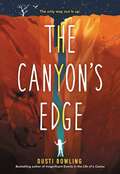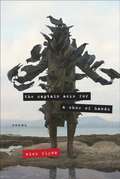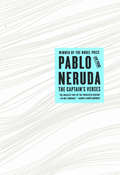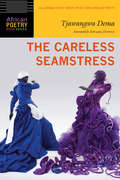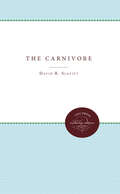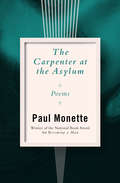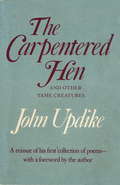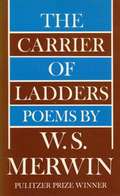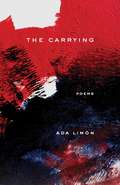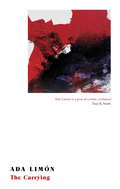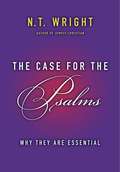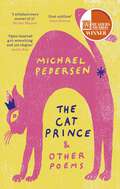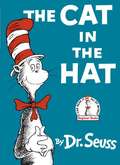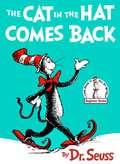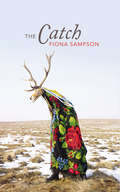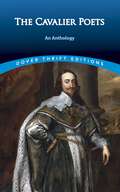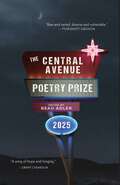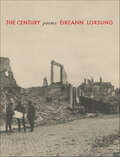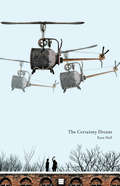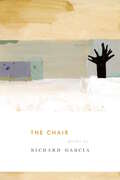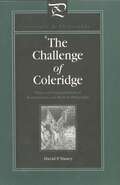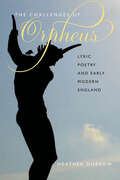- Table View
- List View
The Canyon's Edge
by Dusti BowlingHatchet meets Long Way Down in this heartfelt and gripping novel in verse about a young girl's struggle for survival after a climbing trip with her father goes terribly wrong. One year after a random shooting changed their family forever, Nora and her father are exploring a slot canyon deep in the Arizona desert, hoping it will help them find peace. Nora longs for things to go back to normal, like they were when her mother was still alive, while her father keeps them isolated in fear of other people. But when they reach the bottom of the canyon, the unthinkable happens: A flash flood rips across their path, sweeping away Nora's father and all of their supplies. Suddenly, Nora finds herself lost and alone in the desert, facing dehydration, venomous scorpions, deadly snakes, and, worst of all, the Beast who has terrorized her dreams for the past year. If Nora is going to save herself and her father, she must conquer her fears, defeat the Beast, and find the courage to live her new life.
The Captain Asks for a Show of Hands: Poems
by Nick FlynnNew poetry by the acclaimed writer Nick Flynn, author of Another Bullshit Night in Suck City and The Ticking Is the Bombelectrocution, no—the boy stood in the hot-hot room stammering I did stammering I did stammering I did stammering I did stammering everything you say I did I did. —from "Fire" The Captain Asks for a Show of Hands is Nick Flynn's first new poetry collection in nearly a decade. What begins as a meditation on love and the body soon breaks down into a collage of voices culled from media reports, childhood memories, testimonies from Abu Ghraib detainees, passages from documentary films, overheard conversations, and scraps of poems and song, only to reassemble with a gathering sonic force. It's as if all the noise that fills our days were a storm, yet at the center is a quiet place, but to get there you must first pass through the storm, with eyes wide open, singing. Each poem becomes a hallucinatory, shifting experience, through jump cut, lyric persuasion, and deadpan utterance. This is an emotional, resilient response to some of the essential issues of our day by one of America's riskiest and most innovative writers.
The Captain's Verses: Love Poems
by Pablo NerudaThe Nobel Prize winner 's classic collection of love poems. Pablo Neruda, winner of the Nobel Prize for Literature, finished writing The Captain's Verses in 1952 while in exile on the island of Capri--the paradisal setting for the blockbuster film Il Postino (The Postman). Surrounded by sea, sun, and Capri's natural splendors, Neruda addressed these poems to his lover Matilde Urrutia before they were married, but didn't publish them publicly until 1963. This complete, bilingual collection has become a classic for love-struck readers around the world--passionately sensuous, and exploding with all the erotic energy of a new love.
The Careless Seamstress (African Poetry Book)
by Tjawangwa DemaThis dazzling debut announces a not-so-new voice: that of the spoken-word poet Tjawangwa Dema. Winner of the Sillerman First Book Prize for African Poets, Dema’s collection, The Careless Seamstress, evokes the national and the subjective while reemphasizing that what is personal is always political. The girls and women in these poems are not mere objects; they speak, labor, and gaze back, with difficulty and consequence. The tropes are familiar, but in their animation they question and move in unexpected ways. The female body—as a daughter, wife, worker, cultural mutineer—moves continually across this collection, fetching water, harvesting corn, raising children, sewing, migrating, and spurning designations. Sewing is rendered subversive, the unsayable is weft into speech and those who are perhaps invisible in life reclaim their voice and leave evidence of their selves. As a consequence the body is rarely posed—it bleeds and scars; it ages; it resists and warns. The female gaze and subsequent voices suggest a different value system that grapples with the gendering of both physical and emotional labor, often through what is done, even and especially when this goes unnoticed or unappreciated. A body of work that examines the nature of power and resistance, The Careless Seamstress shows both startling clarity of purpose and capaciousness of theme. Using gender and labor as their point of departure, these poems are indebted to Dema’s relationship to language, intertextuality, and narrative. It is both assured and inquiring, a quietly complex skein that takes advantage of poetry’s capacity for the polyphonic.
The Carnivore (Contemporary Poetry Series)
by David R. SlavittDirectly or obliquely, while reading Gibbon or shopping for toys at F. A. O. Schwarz, Slavitt addresses, invokes, or simply enjoys the civilization that has been the poet's true subject from the time of the wandering bards. Upon the foundation of technical mastery, he has begun to build an oeuvre, to assert himself, and, with insouciance and gaiety, to grow into his majority.Originally published in 1965.A UNC Press Enduring Edition -- UNC Press Enduring Editions use the latest in digital technology to make available again books from our distinguished backlist that were previously out of print. These editions are published unaltered from the original, and are presented in affordable paperback formats, bringing readers both historical and cultural value.
The Carpenter at the Asylum: Poems
by Paul MonetteNational Book Award winner Paul Monette&’s acclaimed first book of poetryOriginally published in 1975, The Carpenter at the Asylum was Monette&’s first literary success. In this collection of poems, he writes with playfulness and candor of everything from fairy tales to the change of seasons. &“All things glitter like fresh milk,&” he writes in one poem. And indeed, these works pull a sparklingly strange beauty from everyday objects and experiences.This ebook features an illustrated biography of Paul Monette including rare images and never-before-seen documents from the Paul Monette papers of the UCLA Library Special Collections.
The Carpentered Hen
by John UpdikeAs a present to John Updike on his fiftieth birthday, and as a treat for his readers, his first book, a collection of light verse originally published twenty-five years ago, is brought back into print, with an author's foreword and some small revisions. Many of these poems were written when the author was a young art student in England and a "Talk of the Town" reporter for The New Yorker, which published over forty of them. They deal with the quiddities of things, the oddities of science, quirks of American life (especially as reported in Life magazine during those smiling Eisenhower years), and moments of epiphany in literature and nature. A number--"Ex-Basketball Player," "Superman," "Mirror," "Quilt"--have been frequently reprinted in anthologies. All show a sharp ear, a fond eye, and an active though not always light-hearted fancy. Written mainly to amuse, Updike's early verse was also, as his foreword states, "a way of dealing with the universe, an exercise of the Word." Admirers who know him mostly through his fiction should be delighted to encounter what he calls "these old evidences of my own high spirits." The Carpentered Hen, in recent years a hard-to-get collector's item, now again. unhinges her wings,abandons her nestof splinter, and sings.
The Carrier of Ladders
by W. S. MerwinPulitzer Prize for Poetry 1971. Merwin has since won a National Book Award for his selected poems and the 2009 Pulitzer for the Shadow of Sirius.
The Carrying: Poems
by Ada Limón<p>Vulnerable, tender, acute, these are serious poems, brave poems, exploring with honesty the ambiguous moment between the rapture of youth and the grace of acceptance. A daughter tends to aging parents. A woman struggles with infertility―“What if, instead of carrying / a child, I am supposed to carry grief?”―and a body seized by pain and vertigo as well as ecstasy. A nation convulses: “Every song of this country / has an unsung third stanza, something brutal.” And still Limón shows us, as ever, the persistence of hunger, love, and joy, the dizzying fullness of our too-short lives. “Fine then, / I’ll take it,” she writes. “I’ll take it all.” <p>In Bright Dead Things, Limón showed us a heart “giant with power, heavy with blood”―“the huge beating genius machine / that thinks, no, it knows, / it’s going to come in first.” In her follow-up collection, that heart is on full display―even as The Carrying continues further and deeper into the bloodstream, following the hard-won truth of what it means to live in an imperfect world.</p>
The Carrying: Winner of the National Book Critics Circle Award for Poetry
by Ada LimónWINNER OF THE NATIONAL BOOK CRITICS CIRCLE AWARD FOR POETRY 2019Ada Limón is a poet of ecstatic revelation . . . a book of deep wisdom and urgent vulnerability' Tracy K. Smith, Guardian'Vulnerable, tender, acute . . . The Carrying is a gift' Natasha Trethewey, Pulitzer Prize-winning poet and former US Poet Laureate'Exquisite poems' Roxane GayFrom National Book Critics Circle Award Winner Ada Limón comes The Carrying - her most powerful collection yet.Vulnerable, tender, acute, these are serious poems, brave poems, exploring with honesty the ambiguous moment between the rapture of youth and the grace of acceptance. A daughter tends to aging parents. A woman struggles with infertility - 'What if, instead of carrying / a child, I am supposed to carry grief?' - and a body seized by pain and vertigo as well as ecstasy. A nation convulses: 'Every song of this country / has an unsung third stanza, something brutal.' And still Limón shows us, as ever, the persistence of hunger, love, and joy, the dizzying fullness of our too-short lives. 'Fine then, / I'll take it,' she writes. 'I'll take it all.'The Carrying leads us deeper towards the hard-won truth of what it means to live in an imperfect world.
The Case For The Psalms: Why They Are Essential
by N. T. WrightOne of the world's most trusted Bible scholars, N. T. Wright turns his attention to the central collection of prayers that Jesus and Paul knew best: the book of Psalms. Wright points out that the Psalms have served as the central prayer and hymnbook for the church since its beginning--until now. In The Case for the Psalms, Wright calls us to return to the Psalms as a steady, vital component of healthy Christian living. Reading, studying, and praying the Psalms is God's means for teaching us what it means to be human: how to express our emotions and yearnings, how to reconcile our anger and our compassion, how to see our story in light of God's sweeping narrative of salvation. Wright provides the tools for understanding and incorporating these crucial verses into our own lives. His conclusion is simple: all Christians need to read, pray, sing, and live the Psalms.
The Cat Is My Grief Today and Other Poems
by P. P. Raveendran Kadammanitta RamakrishnanLife and works (including poems) of Malayalam novelist K. Ramakrishnan. Selected, and translated into English from Malayalam, by P.P. Raveendran.
The Cat Prince: & Other Poems
by Michael Pedersen'Pedersen bends words like no-one else. There's a naughtiness, an innocence and surprising vulnerability in this collection. It's poetry to intoxicate. Just sublime.' Juno Dawson 'Every page of The Cat Prince brought me gladsome joy. Pedersen has the astonishing power of finding the astonishing in every moment that deserves a raised glass' Daljit Nagra'This laser focused collection of poetry by Michael Pedersen will gut you like a fish and smash your heart in. Searingly specific, exquisite and requisite. I relished reading every tiny morsel of it' Shirley Manson'Open-hearted, gut-wrenching and yet elegiac, these poems pack a hefty emotional punch. Michael Pederson's poems display a huge vocabulary for love, love in all its many forms and guises. These poems chart the journey from boyhood to manhood, the highs and the lows, the losses and the gains, always working their way towards an essential, emotional truth' Jackie Kay'If the alphabet is a piano keyboard then Michael Pedersen plays it with the confidence and panache of a jazz improviser who knows that every note can have the potential to change someone's life. Be amazed by this book' Ian McMillan'Michael's poems are so physical you can almost touch the images in them. Fabulously sensual and alive. I adore poetry like this' Stephen FryThe Cat Prince & Other Poems is the third collection from prize-winning poet, and author of Boy Friends, Michael Pedersen. All moggy moxie, Pedersen croons to the beauty and devastation of love, loss, friendship, cats and careless joy. Equal parts tender and trenchant, raw and ribald, plangent and smutty, these poems exhibit an emotionally charged, fantastical playground of language and lore. From the brutalising death of a cherished friend comes a gut-wrenching grief. And so begins a tenacious quest for light, lustre and survival as Pedersen pays tender tribute to a gorgeous, life-altering friendship. In doing so, he harks back to the hilarity of being young, reckless and petrified: memories of boys showboating in a fishing tackle shop, games of feline metamorphosis, laments for demolished buildings and a case of constipation of the most pernicious stock.As frisky as it is fierce, The Cat Prince pounces around the poet's emotional and physical landscapes, past and present, unfankling a Scotland full of gothic splendour and nature's majesty.These poems reveal a poet at his bravest and most vulnerable. The Cat Prince & Other Poems purrs with affection, flashes its teeth, then digs in the claws.
The Cat in the Hat
by Dr SeussRainy days are no fun. But the Cat in the Hat shows up with games and tricks that are bound for trouble!
The Cat in the Hat
by SeussPoor Dick and Sally. It's cold and wet and they're stuck in the house with nothing to do . . . until a giant cat in a hat shows up, transforming the dull day into a madcap adventure and almost wrecking the place in the process! Written by Dr. Seuss in 1957 in response to the concern that "pallid primers [with] abnormally courteous, unnaturally clean boys and girls' were leading to growing illiteracy among children, The Cat in the Hat (the first Random House Beginner Book) changed the way our children learn how to read.
The Cat in the Hat Comes Back!
by Dr SeussFor very young readers, this sequel to The Cat in the Hat has the Cat relying on other Cats to help him clean.
The Catch
by Fiona SampsonFiona Sampson’s latest collection transforms the sensory world into an astonishingly new and vivid poetry. Here, dream and myth, creatures real and imagined, and the sights and sounds of ‘distance and of home’ all coalesce in a sustained meditation on time and belonging. Combining formal sophistication with metaphysical exploration, this is an incandescent work of renewal, beauty and risk.
The Cavalier Poets: An Anthology (Dover Thrift Editions: Poetry)
by Thomas CroftsIn the mid-seventeenth century, the poets associated with the court of Charles I of England, known as the Cavaliers, were strongly influenced by the classicism of Ben Jonson. Their verse, often concerned with the vagaries of love, is characteristically charming, witty, graceful, and elegant. This volume contains a rich sampling of more than 120 works by four Cavalier poets: Robert Herrick, Thomas Carew, Sir John Suckling, and Richard Lovelace.Included are such well-known gems as Herrick's "To the Virgins to Make Much of Time," ("Gather ye rosebuds while ye may"), Carew's "A Cruel Mistress," Suckling's "Why so pale and wan, fond lover?" and many more. Gathered in this inexpensive volume, this garland of memorable verse will delight any student of English literature or lover of fine poetry.
The Central Avenue Poetry Prize 2025 (Central Avenue Poetry Prize)
by Beau AdlerImagine having access to the finest debut poetry from a diverse array of emerging poets, all conveniently compiled in a single volume. The second instalment of The Central Avenue Poetry Prize maintains the exceptional standard set by its inaugural edition.This second volume of The Central Avenue Poetry Prize offers a collection of depth and breadth from poets worldwide and of various backgrounds. Readers will find a tapestry of emotions—heartache, longing, laughter, and the essence of life itself—each poem capturing human creativity and experience. From anecdotes to reflections, from tales of beauty to moments of raw truth, this collection serves as both a tribute to the art form and a poignant reminder that writing is an extension of living—an act of expression that allows us to reveal ourselves and connect with others.
The Century: Poems
by Éireann LorsungA meticulously detailed catalogue of ordinary people performing acts of extraordinary violence, The Century charts an awakening to structures of dominance and violence. In the tradition of witness poetry, The Century tugs apart the quotidian horrors required to perpetuate acts of violence like the Holocaust, the deployment of nuclear weapons in Japan and Iraq, American slavery and its lingering aftermath. When Éireann Lorsung writes of death and dying, of “bodies in the fields becoming the fields,” it’s the simplicity that’s most haunting. After a fire, “some of their skin moved off of them as they ran, a very / simple melting…” But these poems don’t just witness; they also resist and serve as models for resistant lives. Pushing back against form and grammar, constructions of time and geography, Lorsung traces decades of technological, geopolitical, and cultural shifts through generations and across continents as networks of dominance continue to be stubbornly upheld. The Century is evasive but thorny, splintering in the mind. This collection is a reminder that the arrival of each new century, decade, or year brings with it an invitation to join ongoing movements of resistance, air pockets of hope in the waters that we all swim or drown in.
The Certainty Dream
by Kate HallShortlisted for the 2010 Griffin Poetry Prize. Descartes asked, How can I know that I am not now dreaming? The Certainty Dream poses similar questions through poetry, but without the trappings of traditional philosophy. Kate Hall's bracingly immediate, insistently idiosyncratic debut collection lays bare the tricks and tools of her trade: a mynah bird perches in poems but 'stands for nightingale'; the poet's antelope turns transparent; she dresses up her orange trees with bark and leaves. As the dream world and the waking world blur, the body and the dimensions it inhabits become a series of overlapping circles, all acting as containers for both knowledge and uncertainty. At times disarmingly plainspoken, at others, singing with lyric possibility, these poems make huge associative leaps. Taken together, they present the argument that to truly 'know' something, one must first recognize its traces in something else.
The Chair
by Richard GarciaOne of America's foremost prose poets, Richard Garcia's The Chair simultaneously takes place in the natural world and a speculative world rich in the fabulist tradition: historical figures roam like ghosts, time is pulled and twisted, and narrative spins effortlessly out of language. A core of autobiography grounds these poems that are rife with surprises uniting the mythic and the everyday.Richard Garcia's awards include an NEA, a Pushcart Prize, and the American Poetry Journal Book Prize. He teaches creative writing in the Antioch University Los Angeles Low-Residency MFA program and lives on James Island, South Carolina.
The Challenge of Coleridge: Ethics and Interpretation in Romanticism and Modern Philosophy (Literature and Philosophy)
by David HaneyInterweaving past and present texts, The Challenge of Coleridge engages the British Romantic poet, critic, and philosopher Samuel Taylor Coleridge in a "conversation" (in Hans-Georg Gadamer’s sense) with philosophical thinkers today who share his interest in the relationship of interpretation to ethics and whose ideas can be both illuminated and challenged by Coleridge’s insights into and struggles with this relationship.In his philosophy, poetry, theology, and personal life, Coleridge revealed his concern with this issue, as it manifests itself in the relation between technical and ethical discourse, between fact and value, between self and other, and in the ethical function of aesthetic experience and the role of love in interpretation and ethical action.Relying on Gadamer’s hermeneutics to supply a framework for his approach, Haney connects Coleridge’s ideas with, among others, Emmanuel Levinas’s other-oriented notion of ethical subjectivity, Paul Ricoeur’s view about the other’s implication in the self, reinterpretations of Greek drama by Bernard Williams and Martha Nussbaum, and Gianni Vattimo's post-Nietzschean hermeneutics.Coleridge is treated not as a product of Romantic ideology to be deconstructed from a modern perspective, but as a writer who offers a "challenge" to our modern tendency to compartmentalize interpretive issues as a concern for literary theorists and ethical issues as a concern for philosophers. Looking at the two together, Haney shows through his reading of Coleridge, can enrich our understanding of both.
The Challenges of Orpheus: Lyric Poetry and Early Modern England
by Heather DubrowThis critical exploration of how we define lyric poetry is “thorough, penetrating, and on the cutting edge of contemporary scholarship” (Choice).As a literary mode “lyric” is difficult to define. The term is conventionally applied to brief, songlike poems expressing the speaker’s interior thoughts, but many critics have questioned the underlying assumptions of this definition. While many people associate lyric with the Romantic era, Heather Dubrow turns instead to the poetry of early modern England. The Challenges of Orpheus confronts widespread assumptions about lyric, exploring such topics as its relationship to its audiences, the impact of material conditions of production and other cultural pressures, lyric’s negotiations of gender, and the interactions and tensions between lyric and narrative.Dubrow offers fresh perspectives on major texts of the period—from Sir Thomas Wyatt’s “My lute awake” to John Milton’s Nativity Ode—as well as poems by lesser-known figures. She also extends her critical conclusions to poetry in other historical periods and to the relationship between creative writers and critics, recommending new directions for the study of lyric and of genre.A Choice Magazine Outstanding Academic Title
